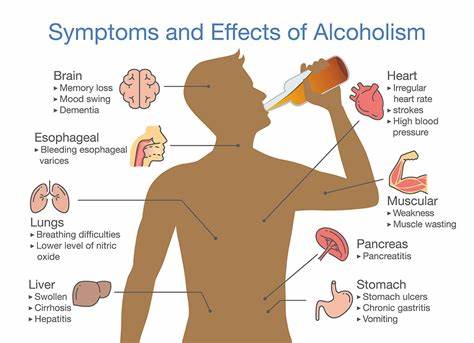Understanding Alcohol Addiction
Alcohol addiction, also known as alcohol use disorder (AUD), is a chronic and often progressive condition characterized by the inability to control or stop drinking despite adverse consequences. It affects millions of people worldwide, causing significant physical, emotional, and social harm. Understanding the nature of alcohol addiction is the first step toward seeking effective treatment and recovery.
Alcohol addiction can develop gradually over time, starting with occasional drinking that escalates into dependency. This condition is not a sign of weakness or a lack of willpower; it is a complex disease that requires professional intervention. The causes of alcohol addiction are multifaceted, involving a combination of genetic, environmental, psychological, and social factors
Recognizing the Signs and Symptoms
Identifying alcohol addiction early is crucial for successful treatment. Some common signs and symptoms of alcohol use disorder include:
- Increased Tolerance: Needing to consume larger amounts of alcohol to achieve the same effects.
- Loss of Control: Being unable to stop drinking once started, or drinking more than intended.
- Withdrawal Symptoms: Experiencing physical symptoms such as tremors, sweating, nausea, and anxiety when not drinking.
- Neglecting Responsibilities: Failing to fulfill work, school, or family obligations due to drinking.
- Continued Use Despite Consequences: Persisting in alcohol use despite knowing it causes harm to health, relationships, or legal standing.

Types of Alcohol Addiction Treatment
Detoxification
Inpatient Rehabilitation
Inpatient rehabilitation offers intensive, structured treatment in a residential setting for severe alcohol addiction or failed outpatient attempts. It includes medical care, various therapies (CBT, individual, group, and family), life skills training, and relapse prevention education. Duration varies from 30 days to several months based on individual needs.
Outpatient Rehabilitation
Outpatient rehabilitation allows individuals to live at home while attending therapy sessions, making it ideal for milder addiction or as a follow-up to inpatient care. It includes regular therapy (individual, group, family), support groups like AA, and medication management. Program intensity varies from daily to weekly or bi-weekly sessions.
Aftercare and Long-Term Recovery
Recovery from alcohol addiction is a lifelong process that requires ongoing support and commitment. After completing a formal treatment program, individuals must continue to engage in aftercare to maintain their sobriety and prevent relapse. Aftercare may include:
- Continued Therapy: Regular sessions with a therapist to address any ongoing challenges and reinforce coping strategies.
- Support Groups: Ongoing participation in support groups to stay connected with others in recovery.
- Sober Living Homes: Transitional living environments that provide a supportive and alcohol-free setting for individuals in early recovery.
- Relapse Prevention Plans: Developing a personalized plan to identify triggers, manage stress, and avoid situations that could lead to relapse.
The Role of Family and Friends
Family and friends play a crucial role in supporting a loved one through alcohol addiction treatment and recovery. Their involvement can significantly improve the individual’s chances of success. However, it’s important for family members to seek their own support, as living with or caring for someone with alcohol addiction can be challenging and emotionally taxing.
Family therapy and support groups for loved ones, such as Al-Anon, provide valuable resources for families to learn how to support their loved one while also taking care of their own well-being.
Yoga and Physical Exercise
Physical activity
Physical activity is a vital component of holistic alcohol addiction treatment. Exercise helps release endorphins, the body’s natural mood elevators, which can improve mental health and reduce the desire to use alcohol as a coping mechanism.
Yoga
Aerobic Exercise
Aerobic exercise, including running, swimming, or cycling, boosts cardiovascular health, elevates mood, and reduces stress. These benefits support overall recovery and contribute to improved physical and mental well-being.
Overcoming Stigma and Seeking Help
One of the biggest barriers to seeking treatment for alcohol addiction is the stigma associated with the condition. Many individuals fear judgment or discrimination, which can prevent them from reaching out for help. It’s essential to recognize that alcohol addiction is a medical condition, not a moral failing, and seeking treatment is a courageous step toward healing.
By raising awareness and educating the public about the realities of alcohol addiction, we can reduce stigma and encourage more people to seek the help they need.
- Nutritional therapy helps restore essential nutrients depleted by alcohol addiction, addressing malnutrition and health issues. It involves a balanced diet and supplements to repair damage, boost immunity, and enhance mental clarity and mood. Key components include:
- Dietary Planning: Creating a nutrient-rich diet.
- Supplementation: Using vitamins and minerals to address deficiencies.
- Hydration: Promoting adequate water intake to support detoxification and overall health.
Mindfulness and Meditation
Mindfulness practices, including meditation, are effective tools in managing stress and cravings associated with alcohol addiction. These practices teach individuals to focus on the present moment, reduce anxiety, and develop greater self-awareness, which can help in recognizing and managing triggers for drinking.
Mindfulness-Based Stress Reduction (MBSR): This program teaches mindfulness techniques to help individuals cope with stress, anxiety, and depression, which are common triggers for alcohol use.
Meditation: Regular meditation practice can promote relaxation, reduce stress, and enhance emotional resilience, making it easier to resist the urge to drink.
Understanding the Role of Co-Occurring Disorders
Many individuals with alcohol addiction also suffer from co-occurring mental health disorders, such as depression, anxiety, or post-traumatic stress disorder (PTSD). These co-occurring disorders can complicate the treatment process, making it essential to address both conditions simultaneously for successful recovery.
- Integrated Treatment: Involves coordinating care for both alcohol addiction and co-occurring mental health disorders. This approach may include a combination of medication, therapy, and support groups tailored to the individual’s specific needs.
- Dual Diagnosis Programs: Specialized programs that focus on treating individuals with both alcohol addiction and mental health disorders. These programs offer comprehensive care, addressing the interconnected nature of addiction and mental health.